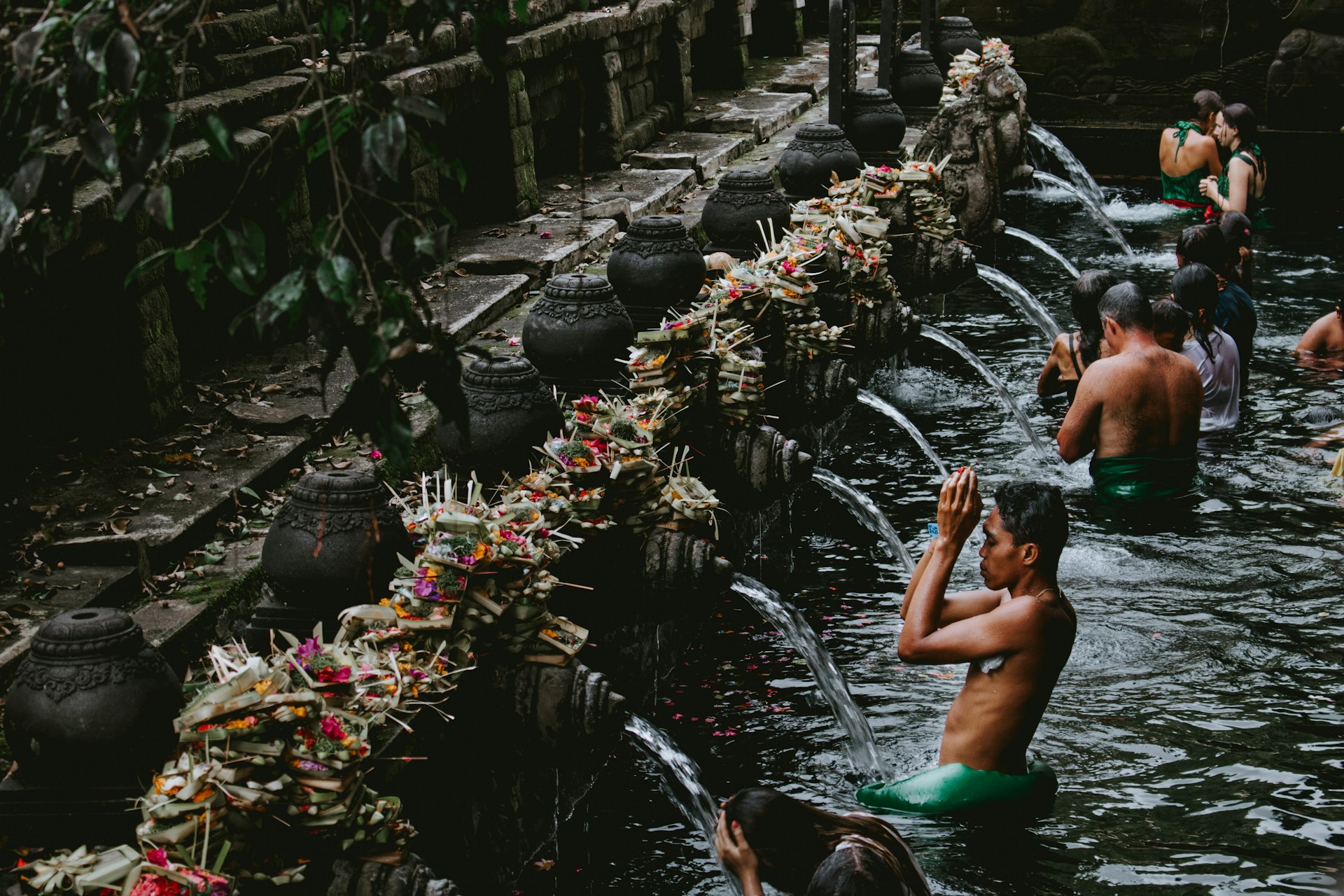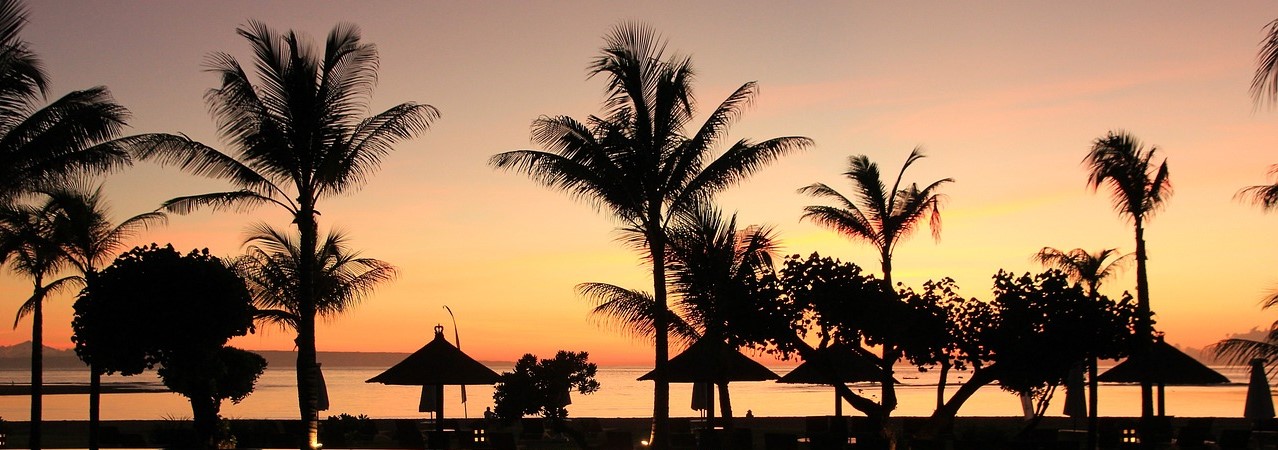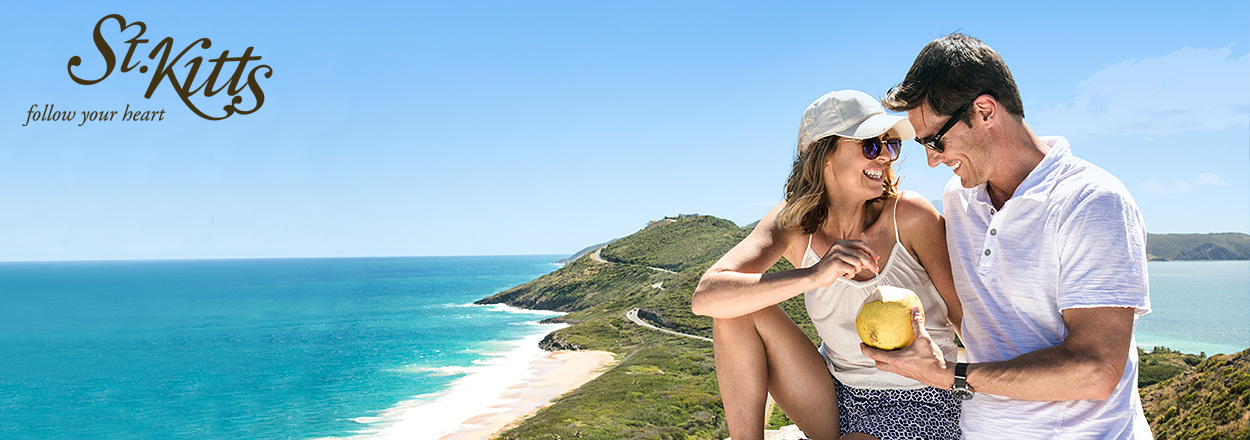An Indonesian province and part of the Lesser Sunda Island group, this tropical destination is known for its rich culture, friendly locals, culinary expertise and thriving nightlife, though the true extensiveness of Bali’s offerings is hard to sum up. And while this wide range of options means travelers can take a more customizable approach when planning their itineraries, there’s one thing Bali does best: health and wellness.
Beautifully blending modern and traditional practices with spas, temples and retreats, the naturalistic R&R charm continues to draw millions of visitors to hotspot areas like Ubud and Canggu each year, where rejuvenation awaits.
Cultural Influence
Nicknamed the “Island of the Gods” for good reason, Bali is home to a religious population with most of its citizens practicing a form of Hinduism known as Agama Hindu Dharma. At its origin, the Tri Hita Karana, roughly translating to “Three Causes of Goodness,” is a key element of Balinese Hinduism focusing on an individual’s relationships with other humans, nature and the divine. Overall happiness is achieved when these relationships are balanced, and often, Balinese healers will address both the spiritual and physical realms to restore this equilibrium.
The nuances of Agama Hindu Dharma are far more complex than the Tri Hita Karana alone, but with a basic understanding of the spiritual tenets, traditional Balinese wellness treatments offer a much more meaningful experience, providing travelers with deeper relief and relaxation.

Wellness Experiences
Whether it’s a long hike, morning sun salutations or a deep tissue massage, wellness looks different to each traveler, and Bali, with its endless array of options, has something to meet every need. From mountain landscapes, quiet beaches and secluded villages to luxurious retreats, guests can choose their preferred treatment while exploring the diversity of the island’s terrain.
The first stop for many travelers is Pura Tirta Empul where visitors can participate in a “melukat,” or water purification ceremony. A staple in Balinese Hinduism, water is believed to possess the ability to cleanse the body and spirit from impurities, negative energy and karma through immersion into a sacred water source. Local priests attend these ceremonies to help guide new guests through the prayer and purification process.
Visitors can also honor Bali’s spiritual roots by embarking on a sunrise hike up the active volcano and holy site, Mount Batur. In Balinese culture, it is believed that gods and other spirits reside here, acting as a gateway between the physical and spiritual realms. Not only does the peak offer breathtaking views of the world below basking in the morning sun’s glow, but it’s also an opportunity for visitors to cleanse the mind and soul while learning of ancient legends.

Wellness experiences rooted in Balinese spiritual beliefs may not be every traveler’s cup of tea, but luckily, there are plenty of other ways to enjoy a health excursion on this island paradise. Zero-gravity floating therapy at Solace Float in Canggu is a great alternative for clearing the mind. Each pod is filled with warm Epsom salt water that allows guests to effortlessly float; simply pop in the provided ear plugs and turn off the lights to mute external noise and indulge in a journey of true relaxation. For a more movement-based experience, travelers should find their way to the Samyama Meditation Center in Ubud, where they can choose to participate in dark or silent yoga retreat options.
No matter if a traveler decides to take a traditional or modernized approach to their time spent on the beautiful lands of Bali, there’s one thing that never fails to heal the soul, and that’s some good eats. Here, food is viewed as medicine, not just obligatory sustenance. As a result, dishes are made with the freshest ingredients, often seasoned with specific herbs and spices for their healing properties. The cuisine also caters to dietary restrictions with vegan and vegetarian modifications available for most dishes. Visitors should be sure to sample popular meals before departing, such as urab, a traditional vegetable salad with coconut dressing; nasi campur, white rice with meat, vegetables or eggs on the side; and bubur mengguh, a dish reminiscent of porridge topped with chicken, peanuts and celery.
Originally appeared in the Fall 2024 issue of The Compass magazine






comments